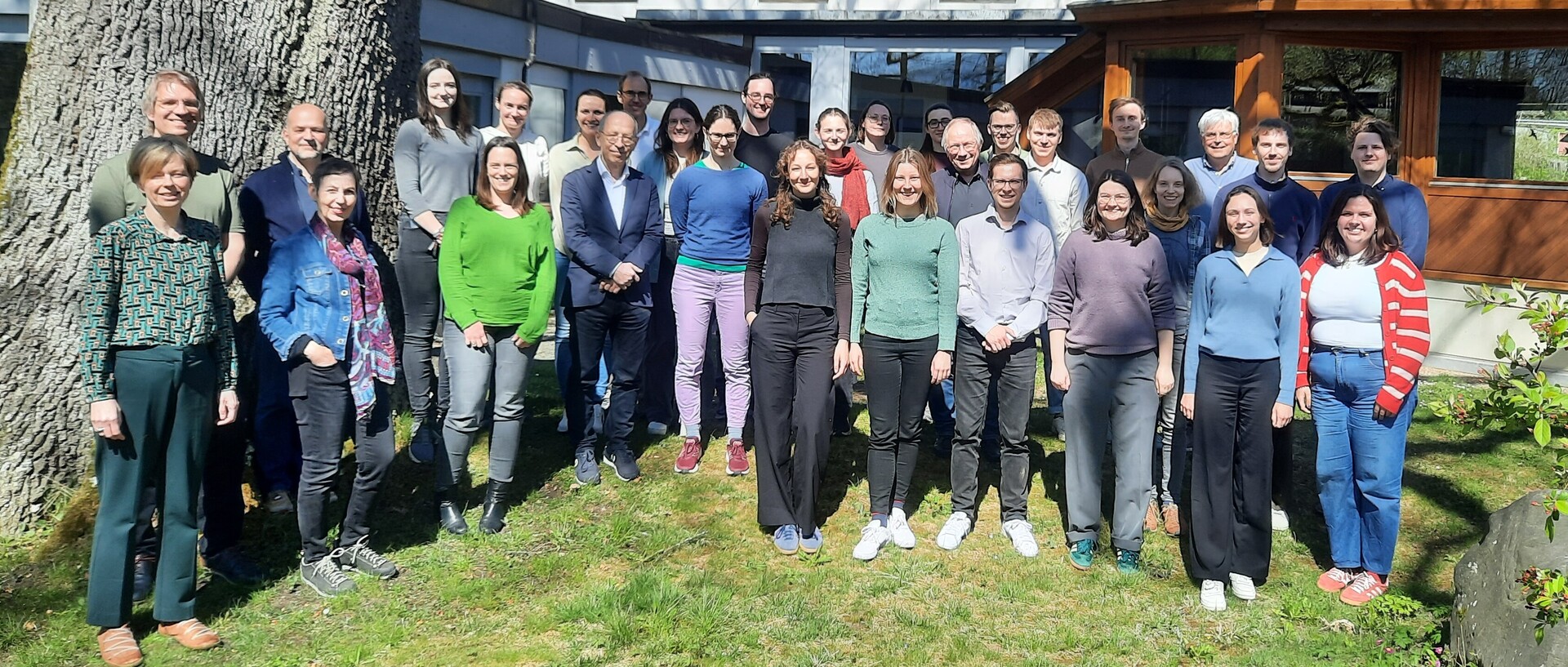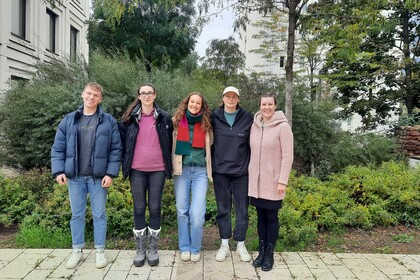Welcome to the DFG Research Training Group “Statistical Modeling in Psychology” (SMiP)!
The DFG Research Training Group “Statistical Modeling in Psychology” (SMiP) is a transregional collaboration of thirteen renowned behavioral researchers from five German universities: University of Mannheim (Arndt Bröder, Edgar Erdfelder, Beatrice G. Kuhlmann, Thorsten Meiser, Sabine Sonnentag), Albert-Ludwigs-University Freiburg (Andrea Kiesel, Karl Christoph Klauer), Ruprecht-Karls-University Heidelberg (Andreas Voss), RPTU Kaiserslautern-Landau at Landau (Benjamin E. Hilbig, Tanja Lischetzke, Eunike Wetzel), and Eberhard Karls University Tübingen (Mandy Hütter, Rolf Ulrich). The participating researchers of the SMiP group have a strong background in advanced quantitative methods and are experts in diverse substantive fields of psychology addressing cognition and social cognition, motivation and affect as well as individual differences.
The SMiP group aims to overcome a persistent and growing challenge in behavioral research, namely, the gap between substantive research in basic and applied fields of psychology and latest developments in statistical modeling and psychometrics. To counteract the segregation of psychology into substantive science and statistical methodology, the SMiP group conceives statistical models as frameworks for formalizing psychological theories and research questions. Theoretical predictions can thus be phrased in terms of model parameters, and state-of-the-art statistical techniques can be used both to measure psychological constructs via parameter estimation and to test these predictions using up-to-date methods of model selection and model testing.
In a nutshell, the SMiP group approaches substantive research questions by means of statistical modeling.



